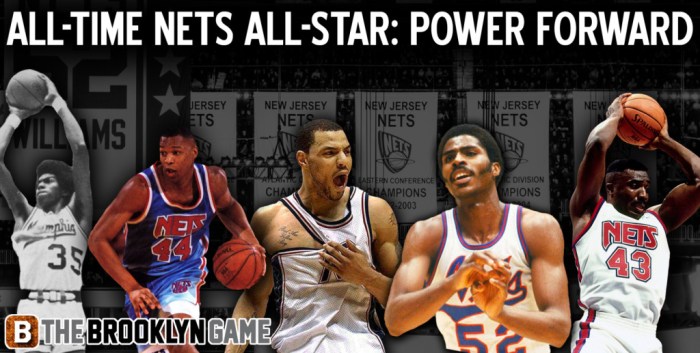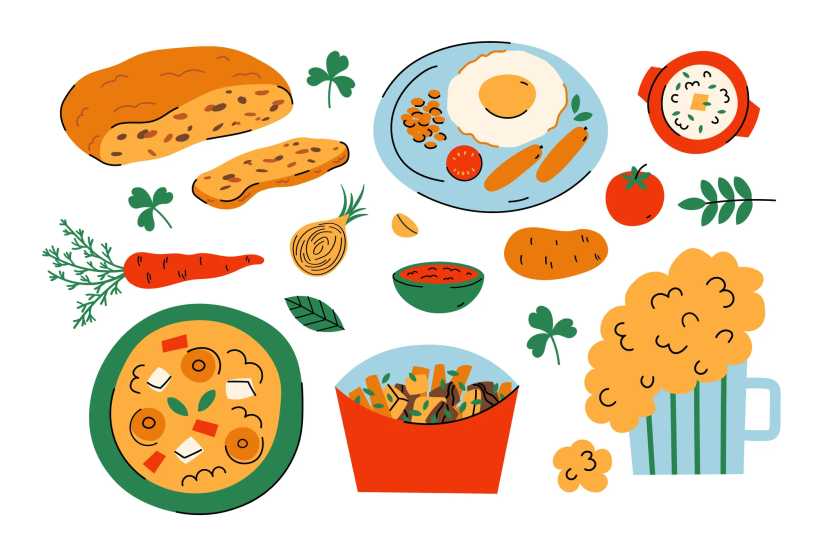
Think back to December 2006. It was a simpler time. It was a better time. There might be a lot of great things you remember about 2006. You might remember the Winter Olympics in Turin. Or the World Cup in Germany. Or maybe even that Shaquille O’Neal could once dunk.
What you probably don’t remember quite as clearly is a trifling regular-season basketball game between the New Jersey Nets and Phoenix Suns on December 7 (You can view the game on YouTube here).
I decided to watch this game over again and write about it in anticipation of the two teams’ matchup in the Prudential Center Monday night. Little did I know that last night’s game would be so good that it would evoke references to the storied 2006 game and leave me in tears of excitement at its conclusion much like the classic did. But the circumstances make this reminiscence all the more appropriate. While Monday night’s game might have tickled the fancy of some, it was a mediocre display at best by Nets-Suns standards.
There’s no doubt that most NBA viewers prefer to watch a fast-paced basketball game rife with scoring, killer three-pointers, and electrifying dunks, and the Phoenix Suns of the mid-2000s embodied all of the qualities that a thrill-hungry fan could hope for. Steve Nash ran the point like a wizard, Amare Stoudemire controlled the paint with reckless abandon and thunderous athleticism, and Raja Bell and Shawn Marion rained threes on unsuspecting opponents.
Of course, the responsibility for this brand of the basketball belongs in the hands of Mike D’Antoni, whose offense has garnered incredible respect around the league. The fact that the following quotation comes from the mouth of someone who has seen some of the greatest offensive performances of all-time is telling of the epic standing of this game.
“I think we can go home and turn on Classic NBA. It will be on there already. That’s the best game I have ever seen,” D’Antoni said after the game.
While even the most fierce appreciators of this contest (like me) will raise concerns with D’Antoni’s assertion, few games in the history of the NBA were as hair-raising as this one. But what makes it stand out is how few people know about it. A more reasonable adaptation of D’Antoni’s claim is that it’s the most underrated game of all time. You can talk about Michael Jordan’s myriad performances or you can talk about Celtics-Lakers finals matchups — but that’s the problem. You can’t talk about this game because there’s no one to talk about it with.
Furthermore, it might seem strange for a Nets writer to be promoting a game that the Nets dropped. The Suns did, in fact, win the battle 161-157 after two overtime periods. But, if anything, that speaks to just how much meaningful it really was. The quality of the play was so great that it managed to belittle even the smallest consideration of the result for someone who has demonstrated a strong emotional investment in the Nets in the past.
It was so fun reviewing this game because of all the differences between that NBA and this one. How quickly we forget that Vince Carter once could not be denied from scoring or that Boris Diaw didn’t always have to buy his jeans at Men’s Big and Tall. Nenad Krstic was still a budding player, and Kurt Thomas was only 74 years old.
But what shocked me more than anything was seeing rookie Marcus Williams — and realizing that he was actually an indirect catalyst to the Deron Williams trade. The 2012 first-round pick that the Utah Jazz received in the deal actually originated from a deal that sent the troubled guard to the Dubs for an astonishingly protected first-rounder. Over the years, the protection was reduced incrementally as a result of certain circumstances until it became an unprotected pick. Does this deal even happen without Williams’ apparent value to the Warriors? It’s funny. Because this particular game was the best of Williams’ career. The dude had 19 points on 8-of-11 shooting and 5 assists in 33 minutes off the bench. It’s great that you can get that kind of production out of a player who was known at that time for being able to get the most out of Mikki Moore (who, by the way, actually led the NBA in field-goal percentage in 2006 2007—thanks to @yanks08701 for pointing this out to me).
But Williams’ well-timed three pointers, coast-to-coast finishes and unleashings of Moore barely scratch the surface as to why this game was so awesome. As much of a crime as it is to bring up Jason Kidd and Steve Nash after Marcus Williams, I’m going to go ahead and do it anyway.
Still, this has to go down as one of the greatest point-guard duels of the decade. Kidd had 38 points, 14 rebounds, and 14 assists in what, coincidentally, was his 78th career triple-double, the one that squared him with Wilt Chamberlain for third all-time. Nash had 42 points and 13 assists. And really, this game was a perfect microcosm of their careers. Kidd was always known as the passer and rebounder, the guy who would find four shots for his teammates before thinking to take one for himself. Nash was, and still is, the same way.
What really makes this pair of Hall of Famers stick out, though, is their ability to realize when their teams need them. Obviously, it’s not typical for Nash and Kidd to combine for 80 points in any game. But when it came down to it, they needed to score each and every one of those points. When Carter fouled out at the end of the fourth quarter — and Bell and Stoudemire did in the first overtime period — there was no doubt: the game lay in the hands of the floor generals.
Kidd didn’t have any problem playing nearly 48 minutes on his withered legs or hitting all nine of his free throws, just like Nash didn’t care about hitting six of his seven three-point attempts, including one fading left that struck nothing but net to send the game into overtime in the first place. These are the things that comprise being a great point guard — putting the team on your shoulders and leading it to greatness.
Elsewhere, these teams had their typical standouts. Carter and Richard Jefferson paired for 56 points, and Marion and Stoudemire contributed 56 of their own. But what made this game so perfect was the unexpected excellence of typical minor role players. I mentioned Williams already, but he was just one. Moore had 16 points and hit all of his free throws, several of which were clutch. Eddie House, who had struggled miserably since joining the Nets coming in threw in 12 efficient points. Bell was automatic shooting threes from the corner for 24 points, and Diaw came away with the eventual dagger, a jump hook in the paint after bullying Kidd in the post on a defensive switch. Heck, even Jason Collins … Well, he tried, anyway.
Let’s be honest, though: bench standouts don’t make a game epic. This game thrived on its hotly contested nature from the tip until the final buzzer. The night featured largest leads of 10 and 5, by the Suns and Nets respectively, 34 lead changes, 21 ties, and, in case you had forgotten, two extra sessions of play.
Once the fourth quarter began, there was nary a relaxed moment, with the two teams determined to stay within striking distance of each other at all costs. When you’re biting your nails on every possession while watching the game for the sixth time, you know something has to be great. Every time Bell would hit a corner three, Carter would find a way to bury a fadeaway jumper or contort his way to the rim for an acrobatic layup. Every time Nash would find space for a jumper, Kidd would do him one better on the other end.
Of course, the players were loving it, too — you could tell they were more interested in this game than most. At the end of the first overtime period, when Kidd pulled up for a game-winning three from the elbow that came this close to banking in, you could see Carter (who had fouled out) sprinting around, trying to contain his excitement. I could feel my heart sink with Vince’s, too. And there was even a bit of a confrontation. Nash and Moore got in to it after a foul call, barking in each other’s faces. You never see that kind of intensity from Nash anymore.
What can’t be overstated is the impact that the announcing tandem of Ian Eagle and Mark Jackson had on this game. It’s amazing how consistent Eagle has been calling play-by-play for basketball games over the years, with every word so well-fitting to the situation and every scream so dramatic. There’s a reason I routinely call him the best local NBA broadcaster by a landslide, but until you’ve watched this game, you haven’t even seen his best.
He was so great at weaving anecdotes, like Diaws’ parents’ athletic backgrounds, seamlessly into the game commentary, giving the viewer a high-class experience Meanwhile, Jackson’s voice has dropped about three octaves since 2006, but he was just as funny then as he is now, supplementing Eagle’s humor with his own personal brand. One exchange was particularly satisfying:
Jackson (right after Nash hit the overtime-clinching shot: “Ian, pinch me, man. I feel bad because I would have paid to go to this game.”
Eagle: “I feel bad because I actually pinched you.”
That kind of humor effectively woven into the game narrative combined with accurate commentary and great objectivity is so rare to see, but they really pulled it off — and they’re still doing it today, though now separated.
I make it a habit to watch this game once a year, as it is such a rewarding experience. A game like this comes around less frequently than a Brook Lopez rebound, so it’s really something to cling to. My greatest regret about it, again, isn’t that the Nets lost — it’s that nobody knows about it because it was a regular-season game that included a middling participant. It’s a popular opinion these days to not care about the Nets and to write them off as nothing. It’s about time that some of us remembered, if only for once, they were a very attractive product.
















